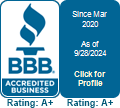
These 5 Practises Can Help You Manage Your Credit Cards Like An Expert
Credit card usage among Americans is exceptional. Seventy-four percent of all purchases, according to the Federal Reserve, are made with credit. Sadly, we are not nearly as good at paying them back.
However, if you want to use credit wisely, you do not have to give up your credit cards. Instead, follow some straightforward practices that will allow you to benefit from them without any risky drawbacks.
Use the following advice to turn credit cards into your best friend rather than your worst enemy.
1. Use A Limited Number Of Cards To Maximize Benefits
You can get more value by using two or three credit cards than one. But distributing purchases among a dozen cards can be difficult to manage and have diminishing returns.
Therefore, before choosing a credit card, you must determine the category that suits your spending habits and financial situation. For instance, you might consider a cash-back card that offers additional rewards if most of your spending is at restaurants or supermarkets. Or, if you travel frequently, you can apply for travel credit cards, cards with airport lounge access, or hotel memberships.
Also, consider how frequently you will use the card before applying for one. For instance, to benefit from in-person discounts, we open store cards. It can be advantageous if you frequently shop at that particular store. Otherwise, you risk getting into serious debt if you forget any fees that come with it.
Finally, it is crucial to fully understand all aspects of the card, including its features, annual charges, reward points, discounts, and extra benefits. Read the terms and conditions, to determine if the card terms would work for you in comparison to other credit cards.
2. Keep An Eye On Your Finances
The biggest drawback of credit cards is how easy it is to spend money with them: swipe, and the transaction is complete. You do not usually even need to sign anything if the charge is small enough!
Therefore, establishing a budget for your cards should be another practice you must develop. You might need to test out a few different budgeting techniques before you find one that works for you. You can use any of the many online budgeting applications like Mint, PocketGuard, or Fudget. You may also discover that you prefer using a paper budget or a straightforward spreadsheet. You can find a variety of budget templates online.
Additionally, set up a budget for each card. Your monthly income should be sufficient to cover your entire balance when the statement comes in. This will save you hundreds of dollars in finance charges.
3. Use Credit Card Rewards Wisely
Credit card rewards can be an excellent way to save money or earn cash back, but they can also lead to overspending and debt if you are not cautious. Use your rewards wisely by redeeming them only for items you need or would buy anyway, and avoid making purchases to earn rewards only.
For example, if your credit card offers cash-back on grocery purchases, use it for weekly grocery shopping. You will earn rewards on purchases you will make anyway, avoiding overspending.
However, the majority of reward points expire after a set period. So, track your reward points and use them before they expire.
Additionally, if you are paying interest because you carry a balance, these become much less appealing. Avoid this by only pursuing credit card rewards you are confident you can pay off in full. If you are unsure, these rewards are probably not worth it.
4. Keep An Eye On Your Credit Usage.
You should keep track of how much credit you can use each month. While you may have a high credit limit on your cards, spending near the limit is not a good idea. Why? 30% of your credit score is based on your credit utilization ratio or how much of your available credit you use. Therefore you should not max out your cards or you will be penalized. For example, if you have a total credit limit of $15,000 across all of your credit cards, it is in your best interest to keep your total monthly charges under $4,500.
To keep track of your spending easily, download your issuer’s smartphone app. When you have some free time, check your balance and make an extra payment if it has risen too far.
5. Set Up Payment Reminders Or Enable Autopay
Failure to pay your bills on time is a quick way to accumulate extra fees and debt. It will also negatively impact your credit score. But, setting up due date reminders can help you avoid these problems. Many credit card companies provide this service for free on their websites, or you can create alerts manually on your phone or computer.
Another option is to enable autopay. You no longer need to be concerned about being forgetful by automating the payment process. However, ensure you have a sufficient balance in your account, as overdraft fees can be costly.
To Summarize
The advantages, rewards, and perks of using credit cards are incredible, but only if you have the willpower and self-discipline to fully utilize them. The above credit card usage tips are just a few ways you can manage your credit cards like a pro and get the most out of them! Remember that your credit card usage significantly impacts your credit scores, so check them regularly.
If you have already accumulated credit card balances that are increasing your debt, contact our financial experts who can help you reduce or pay off the balances for less than you owe- and in less time.


